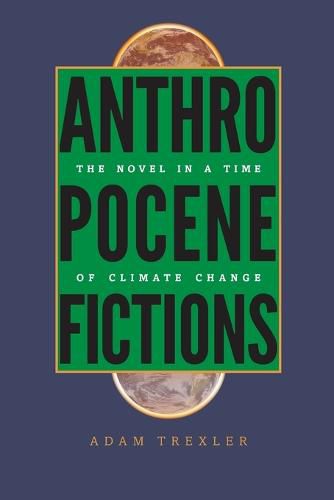Readings Newsletter
Become a Readings Member to make your shopping experience even easier.
Sign in or sign up for free!
You’re not far away from qualifying for FREE standard shipping within Australia
You’ve qualified for FREE standard shipping within Australia
The cart is loading…






This title is printed to order. This book may have been self-published. If so, we cannot guarantee the quality of the content. In the main most books will have gone through the editing process however some may not. We therefore suggest that you be aware of this before ordering this book. If in doubt check either the author or publisher’s details as we are unable to accept any returns unless they are faulty. Please contact us if you have any questions.
Since the Industrial Revolution, humans have transformed the Earth’s atmosphere, committing our planet to more extreme weather, rising sea levels, melting polar ice caps, and mass extinction. This period of observable human impact on the Earth’s ecosystems has been called the Anthropocene Age. The anthropogenic climate change that has impacted the Earth has also affected our literature, but criticism of the contemporary novel has not adequately recognized the literary response to this level of environmental crisis. Ecocriticism’s theories of place and planet, meanwhile, are troubled by a climate that is neither natural nor under human control. Anthropocene Fictions is the first systematic examination of the hundreds of novels that have been written about anthropogenic climate change.
Drawing on climatology, the sociology and philosophy of science, geography, and environmental economics, Adam Trexler argues that the novel has become an essential tool to construct meaning in an age of climate change. The novel expands the reach of climate science beyond the laboratory or model, turning abstract predictions into subjectively tangible experiences of place, identity, and culture. Political and economic organizations are also being transformed by their struggle for sustainability. In turn, the novel has been forced to adapt to new boundaries between truth and fabrication, nature and economies, and individual choice and larger systems of natural phenomena. Anthropocene Fictions argues that new modes of inhabiting climate are of the utmost critical and political importance, when unprecedented scientific consensus has failed to lead to action.
$9.00 standard shipping within Australia
FREE standard shipping within Australia for orders over $100.00
Express & International shipping calculated at checkout
This title is printed to order. This book may have been self-published. If so, we cannot guarantee the quality of the content. In the main most books will have gone through the editing process however some may not. We therefore suggest that you be aware of this before ordering this book. If in doubt check either the author or publisher’s details as we are unable to accept any returns unless they are faulty. Please contact us if you have any questions.
Since the Industrial Revolution, humans have transformed the Earth’s atmosphere, committing our planet to more extreme weather, rising sea levels, melting polar ice caps, and mass extinction. This period of observable human impact on the Earth’s ecosystems has been called the Anthropocene Age. The anthropogenic climate change that has impacted the Earth has also affected our literature, but criticism of the contemporary novel has not adequately recognized the literary response to this level of environmental crisis. Ecocriticism’s theories of place and planet, meanwhile, are troubled by a climate that is neither natural nor under human control. Anthropocene Fictions is the first systematic examination of the hundreds of novels that have been written about anthropogenic climate change.
Drawing on climatology, the sociology and philosophy of science, geography, and environmental economics, Adam Trexler argues that the novel has become an essential tool to construct meaning in an age of climate change. The novel expands the reach of climate science beyond the laboratory or model, turning abstract predictions into subjectively tangible experiences of place, identity, and culture. Political and economic organizations are also being transformed by their struggle for sustainability. In turn, the novel has been forced to adapt to new boundaries between truth and fabrication, nature and economies, and individual choice and larger systems of natural phenomena. Anthropocene Fictions argues that new modes of inhabiting climate are of the utmost critical and political importance, when unprecedented scientific consensus has failed to lead to action.